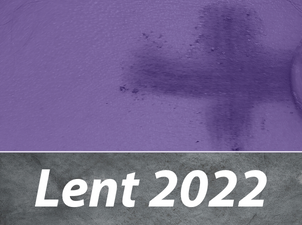
Joan Neal
March 4, 2022
Lent calls us to repentance. It calls us individually and as a community. Sometimes it can be difficult to see our individual failings. Sometimes they’re right in front of us, whether we like it or not. It can be even harder to see our collective failings.
But Robert P. Jones of the Public Religion Research Institute (PRRI) has unearthed and distilled one collective failing that should distress justice-seekers in the United States. Studying public opinion data year after year, he has found that white Christians are consistently more likely than religiously unaffiliated whites to deny the existence of systemic racism.
This disturbing fact is a driving force behind next month’s NETWORK-sponsored event, “White Supremacy and American Christianity,” featuring Dr. Jones, Father Bryan Massingale of Fordham University, and Dr. Marcia Chatelain of Georgetown University.
But as we look forward to that event and prepare ourselves for the joy of the Resurrection at Easter, it is appropriate that we hone our capacity to recognize systemic racism and to be equipped to act in response to it. As writer, activist, and NETWORK board member Leslye Colvin puts it, “We can’t have reconciliation when you are unwilling to do your own work, as painful and difficult as it is for you.” As Dr. Jones points out, this is work that Christians, particularly white Christians, must do and Lent is an opportune time to do it.
[su_pullquote]“We can’t have reconciliation when you are unwilling to do your own work, as painful and difficult as it is for you.” ~Leslye Colvin, writer, activist, and NETWORK board member [/su_pullquote]So for the next six weeks, we will explore systemic racism in a form truly obscured from our view in a system we take for granted: the U.S. tax code. We will do this by intentionally working our way through the NETWORK resource Tax Justice for All, which pinpoints inequities and racist policies embedded in our tax structures.
While Lent and taxes may seem like an unusual combination, the reality is summed up by comedian and commentator John Oliver: “If you want to do something evil, put it inside something boring.”
And so it’s incumbent on us to learn. If we can’t see it, how can we ever repent and make amends? So I encourage you to watch the introduction to this resource and begin to wrestle with the questions below. To confront systemic racism, we must move from reflection to action. And that begins with understanding this reality.
Watch the Introduction to NETWORK’s Tax Justice For All Experience
Watch the first 7 minutes and 45 seconds of the Tax Justice for All workshop to learn from NETWORK Grassroots Mobilization team members Sr. Emily TeKolste, SP and Colin Martinez Longmore why it is so important to learn about the inequities embedded in the U.S. tax code. Next week, we’ll watch more together!
Questions for reflection:
- What are privileges I enjoy in my life without fully appreciating it?
- When have I avoided seeing or recognizing the suffering of another person?
- How does it make me feel, emotionally and physically, to realize the depth of the disadvantage or injustice faced by another person?
[su_quote cite=”NETWORK Prayer to Move from Reflection to Action”]Good and gracious God, as we prepare ourselves to share in the joy of Easter, open our hearts and minds. Help us to see what we would rather not see, especially the suffering caused by the injustice of systemic racism. Help us reflect on these painful realities and see them for what they are. Help us to avoid despair and to move from reflection to action, galvanized by your Spirit. Grant us the courage to speak out and the clarity to cooperate with your grace in building the world anew. Amen. [/su_quote]







